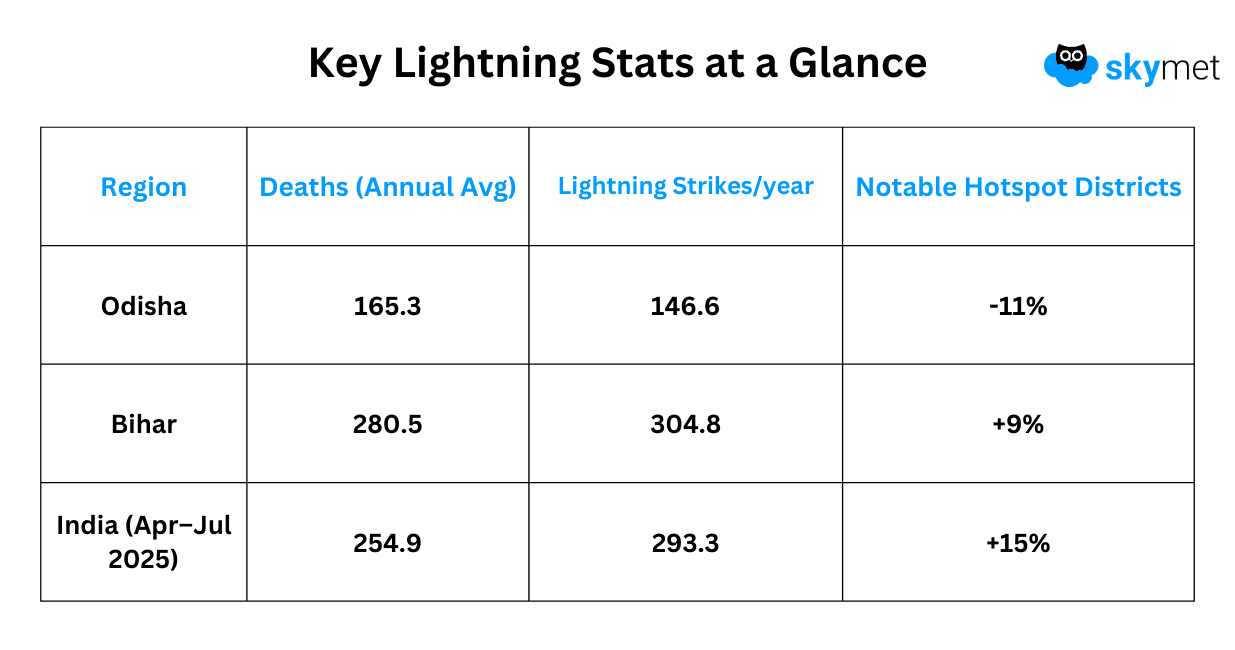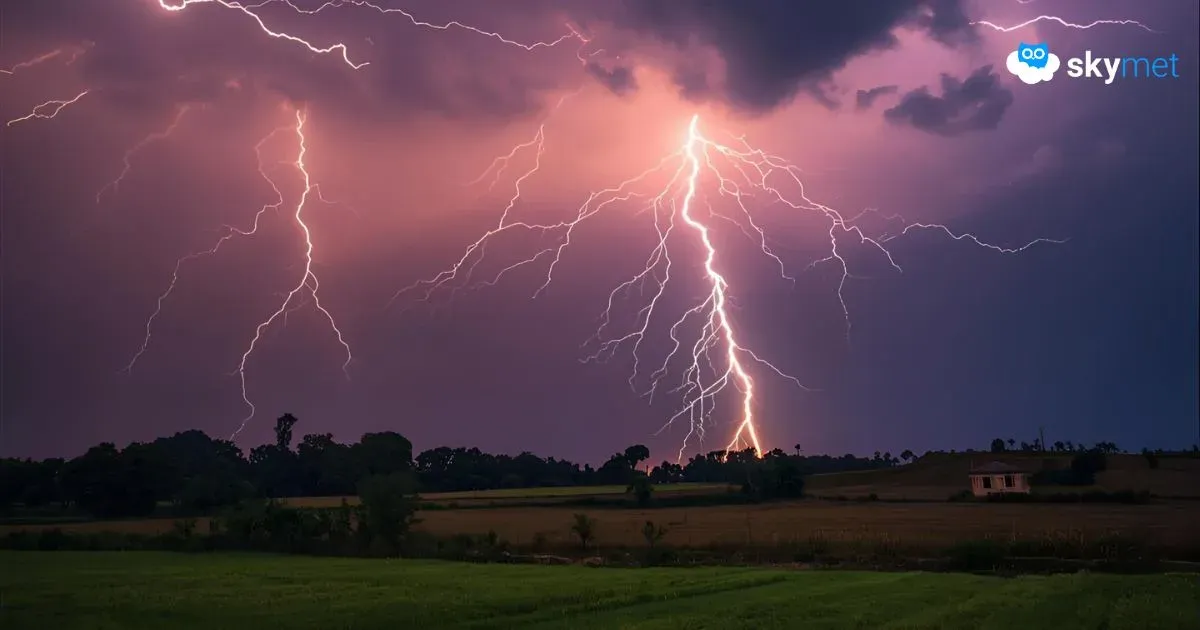Sep 4, 2025, 6:15 PM | Skymet Weather Team
India Faces a Deadly Storm: Lightning as a Silent Killer
Lightning ranks as one of the most lethal natural hazards in India—claiming thousands of lives annually and often overlooked in climate discussions.
Statewise Lightning Fatalities and Strike Frequency
Odisha
- Recorded 1,625 lightning-related deaths over the past five years, highest among Indian states.
- Experiences approximately 600,000 lightning strikes per year.
- Most affected districts: Mayurbhanj (~72,000/year), Sundargarh (~50,000), and Keonjhar (~46,000).
Bihar
- Averages 271 fatalities and 57 injuries annually (2017–2023) due to lightning—one of India’s most vulnerable states.
- Catastrophic single-day event: June 25, 2020, where 83 people died in one afternoon due to "extremely charged" atmospheric conditions.
National Trends
- Between April and July 2025 alone, 1,621 deaths were reported across India from lightning and rain-related incidents.
- From April 10 to 12, an estimated 126 fatalities occurred in Central and Eastern India—mainly in Bihar (82) and Uttar Pradesh (23).
Patterns & Vulnerabilities: Why These States Are Most Affected
Geography & Terrain
- Flat expanses, rural agricultural zones, and presence of open fields increase risk, especially during thunderstorm peaks when outdoor work is common.
Atmospheric Triggers Amplified by Climate
- Elevated humidity and scorching ground heat create “pressure-cooker” convective setups triggering intense lightning episodes.
- Climate change compounds the issue: estimates suggest a 1 °C temperature rise could boost lightning strikes by 12%.

Social Vulnerability
- The majority of lightning deaths occur in rural and tribal areas, where open shelters, limited infrastructure, and low awareness persist.
- Early warnings often fail to reach remote communities in time.
The Takeaway: From Prevention to Preparedness
- Lightning is an invisible and frequent killer—India outpaces many countries in strike-related fatalities.
- Most vulnerable: Bihar and Odisha, due to a confluence of geography, climate triggers, and socio-economic fragility
Solutions needed:
- Expand lightning detection and warning systems
- Launch awareness campaigns in rural/tribal belts
- Install simple lightning arrestors
- Declare lightning as a compensable natural disaster in more states
Data Attribution: External Sources













